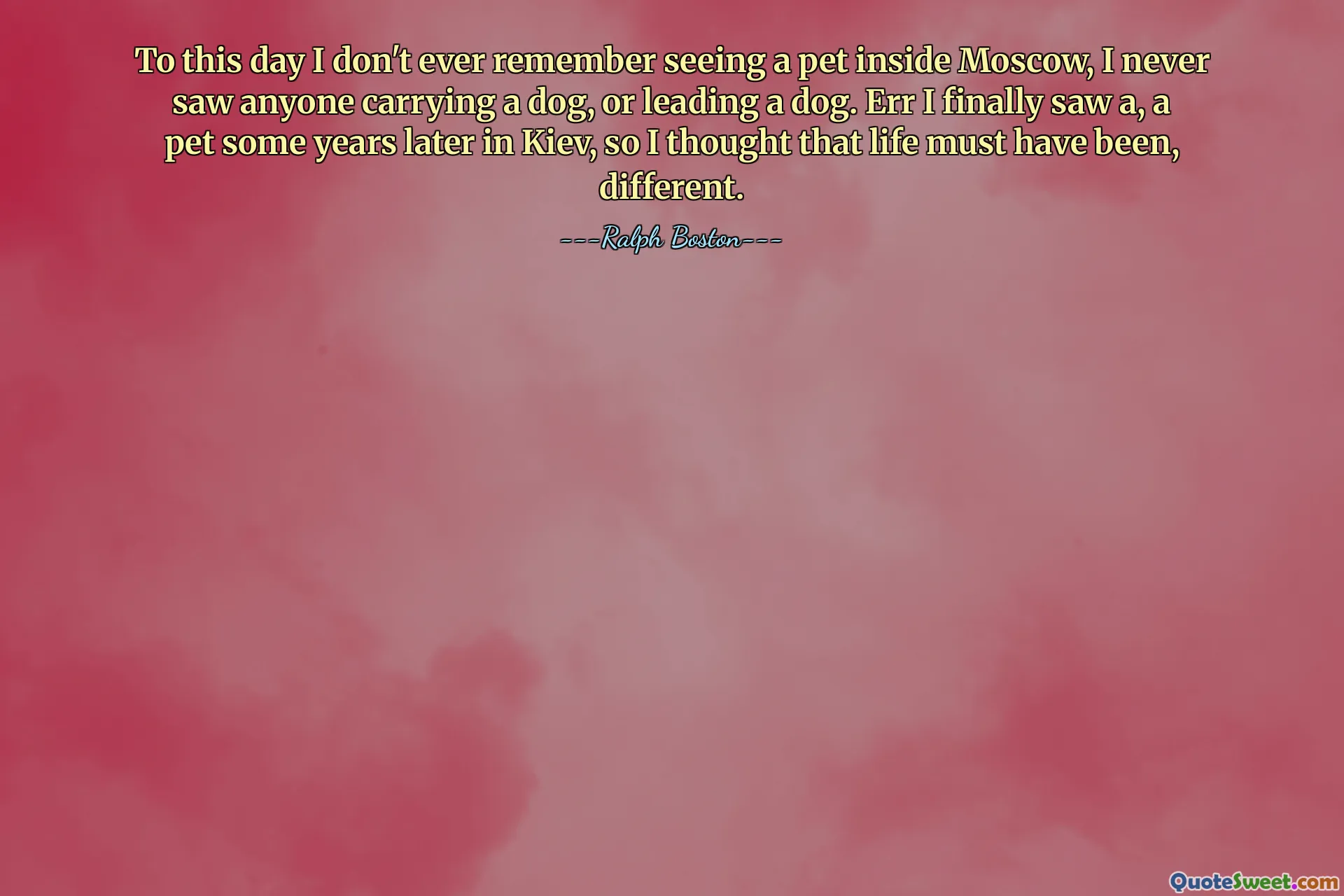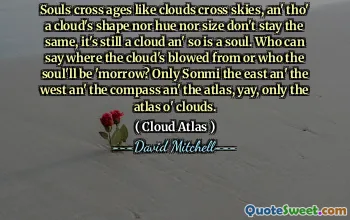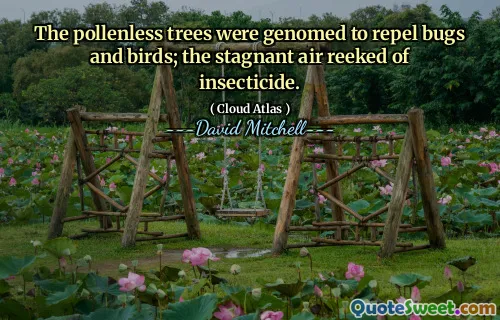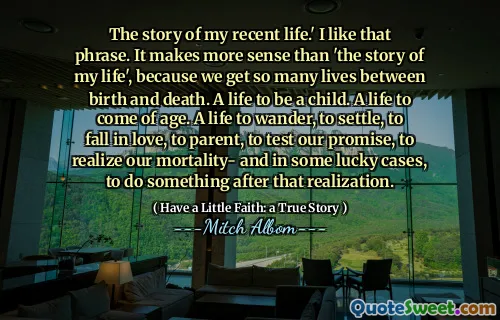
To this day I don't ever remember seeing a pet inside Moscow, I never saw anyone carrying a dog, or leading a dog. Err I finally saw a, a pet some years later in Kiev, so I thought that life must have been, different.
This quote offers a unique glimpse into the daily life and cultural differences observed by the speaker, Ralph Boston, between Moscow and Kiev. It reflects how the presence or absence of something as ordinary as pets in public can strongly influence one’s perception of life in different places. The absence of dogs or pets visibly accompanying people in Moscow might point toward cultural norms or societal attitudes at that time towards pets and public space. Contrasting this with the speaker's experience in Kiev, where they finally saw a pet, draws a subtle but significant line between the two cities — hinting at variations in lifestyle, environment, social habits, and possibly the freedom or constraints felt by individuals in those different urban settings.
On a deeper level, this observation encourages us to consider how seemingly trivial details — like seeing a dog on the street — can symbolize broader social realities. It also speaks to how our environment and the small, everyday details around us shape our understanding of a place and its people. Often, we think about major landmarks or political events to define a city's character, but this quote reminds us that simple, daily life moments and cultural expressions, such as pet owning and how pets are integrated into public life, can give profound insights into societal differences.
Moreover, the quote touches subtly on memory and change over time, as the speaker recalls the experience many years later, noting how it shaped an impression of transformation or difference. Contextually, it may also invite reflection on how personal experiences intersect with historical and cultural contexts to form subjective yet telling perceptions of places.











